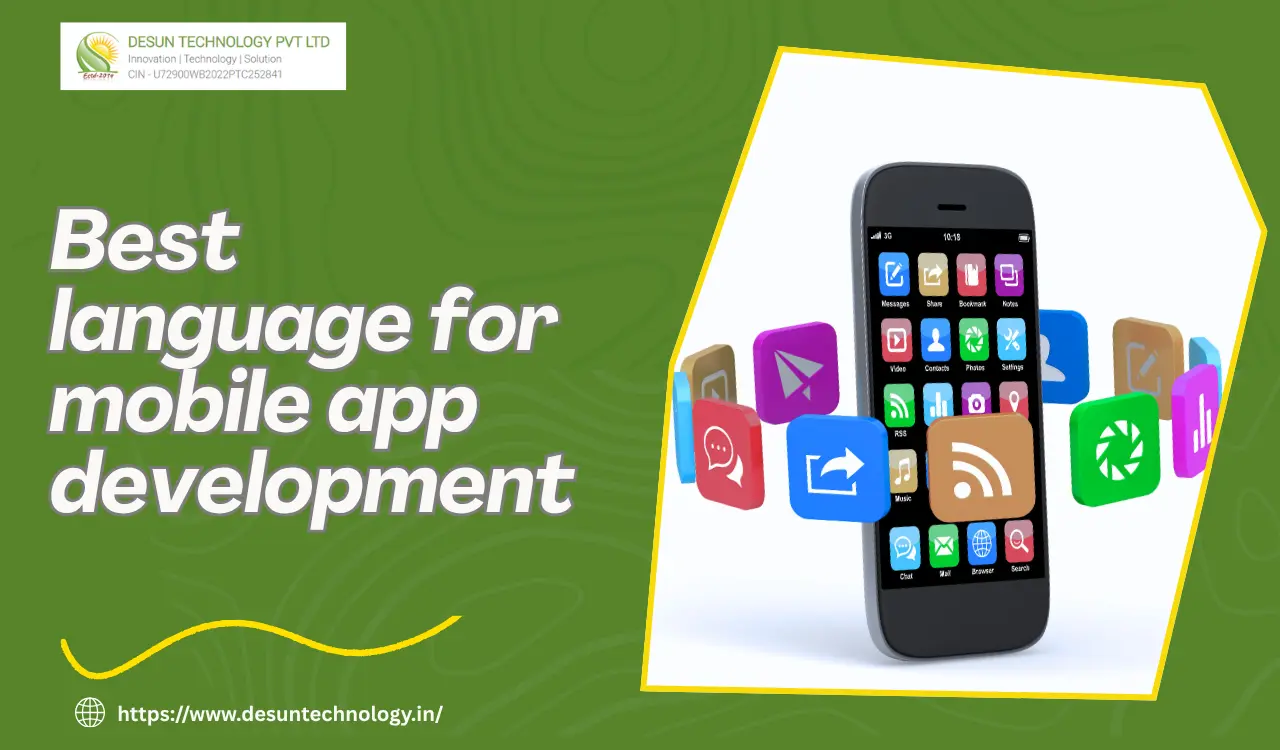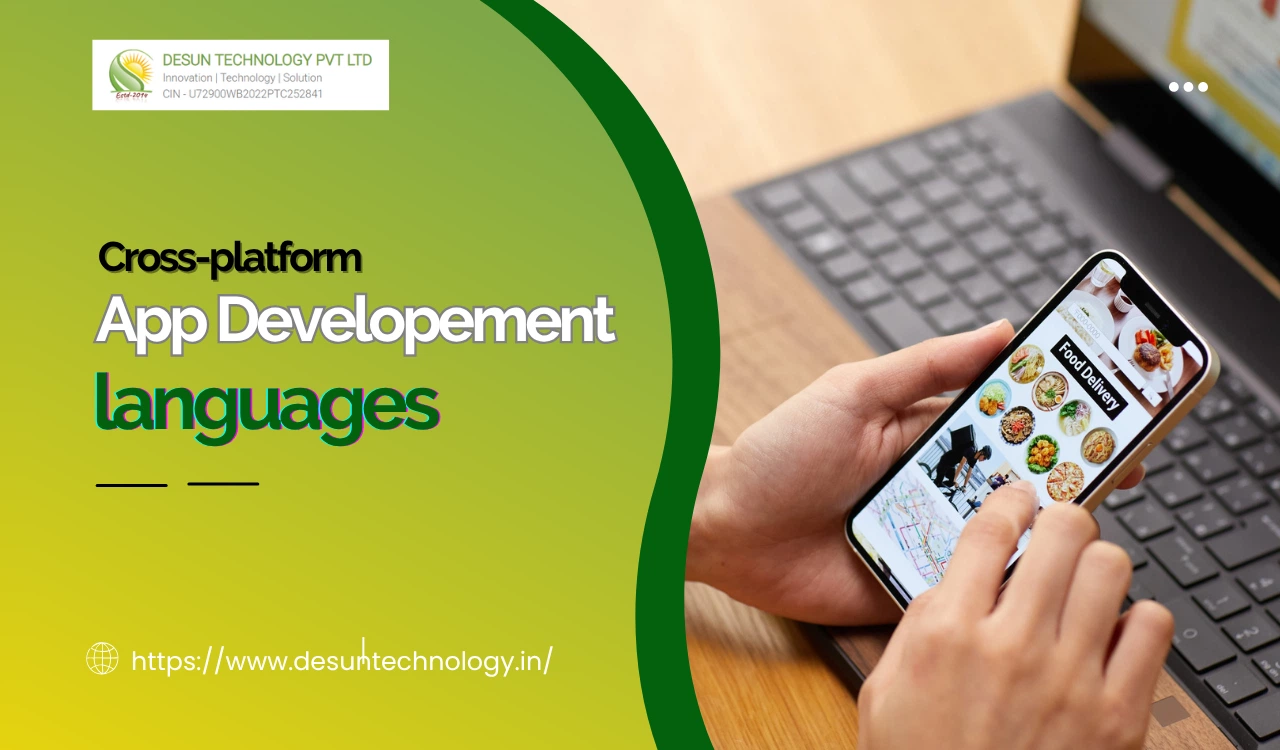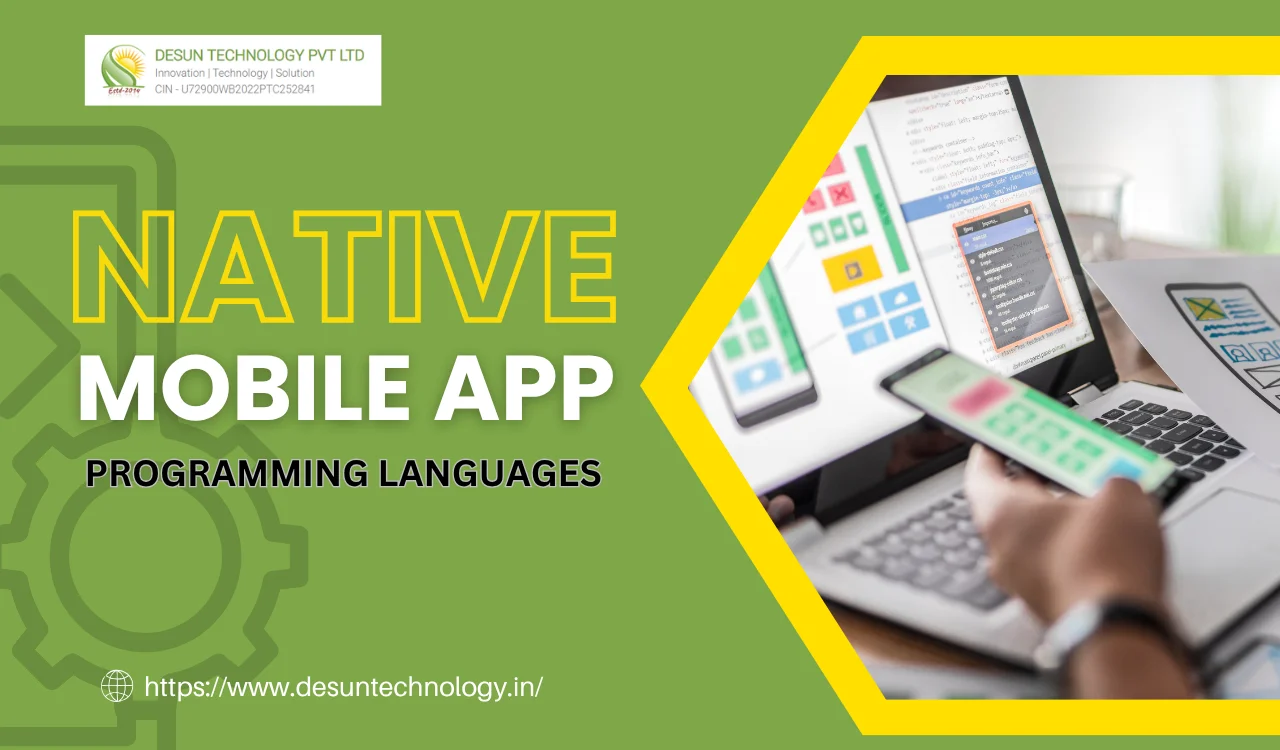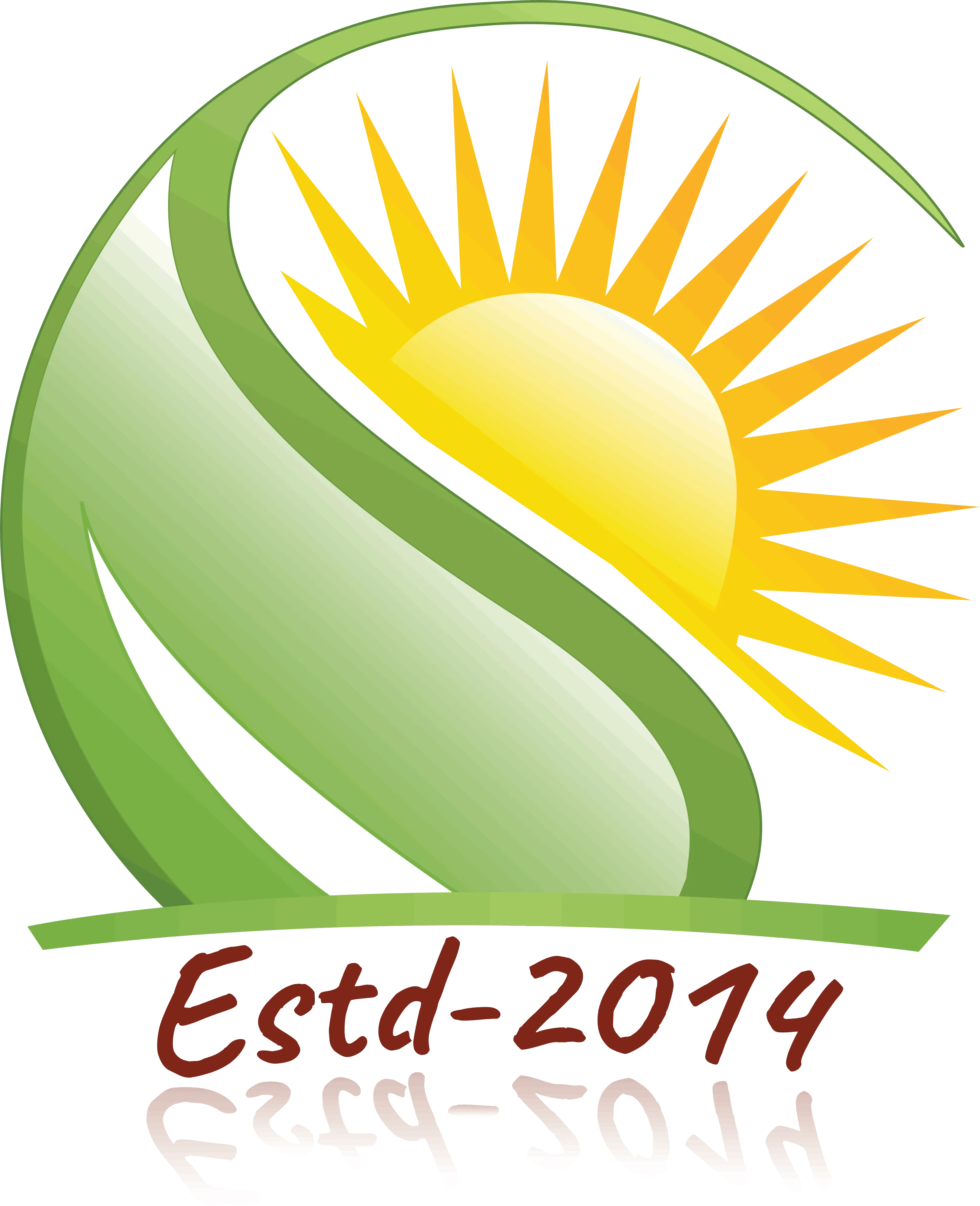
Best Language for Mobile App Development: Everything You Need to Know
The mobile application sector has changed the way companies conduct their operations, networking, and development. In a world where smartphones are ruling all spheres of life, it has become paramount to come up with a high-performing mobile application in order to attract larger masses. However, before going any further in development, there is one great question that is raised: What is the best language for mobile app development?
The programming language that you will select has a direct effect on the performance, scalability, cost, and user experience of your app. A proper choice will make it possible to have a suitable application across all platforms as well as make it fit your business objectives. At Desun Technology, we practice the art of helping companies and startups to find and adopt the technology stack that best fits their needs, be it native or cross-platform.

What is a Language for Mobile App Development?
A programming language that is used to develop applications for mobile devices such as smartphones and tablets is referred to as a mobile app development language. Both Android and iOS mobile platforms possess certain languages, tools, and frameworks attributed to them, enabling developers to develop apps to meet various features and performance rates.
Swift, Kotlin, Java, or Dart are what languages used to create apps that are built on as they allow the developers to compose logic, handle data, and build the user interfaces. The selection of the correct language will define the speed of your application, its security, and how difficult it will be to maintain or to scale after some time.
Types of Mobile Applications
Knowledge of the kind of mobile applications is important to determine the programming language. Their types have their own way of development and their own purpose.
Native Applications
Native applications are applications designed to run on a single platform, either Android or iOS, and are developed in native mobile application programming.
- Android apps are developed using Kotlin or Java.
- iOS apps are created using Swift or Objective-C.
Native apps deliver superior mobile app performance, better security, and a seamless user experience because they have direct access to the device’s hardware and software features. They are ideal for complex applications like gaming, AR/VR, and multimedia platforms.

Cross-Platform Applications
Cross-platform applications are software or programs that can operate on different operating systems with a single code. The method embraces the use of cross-platform application development languages that include Flutter, React Native, and Xamarin.
The apps include rapid development, lower prices, and wider coverage, which is ideal in the case of startups and other companies interested in covering both iOS and Android at the same time.
Hybrid Applications
Native and Web technologies can be found in hybrid apps. They are created on the basis of web languages such as HTML, CSS, and JavaScript, and they are encased within a native container. Although hybrid apps are time-saving and cost-effective, they do not necessarily have the high performance of fully native or cross-platform apps.
Native Mobile App Programming Languages

Native development is the most suitable one when performance and responsiveness are your priorities. Two popular native mobile application programming languages include:
Swift for iOS
Swift, which was created by Apple, is the language of choice in creating apps on iOS. It is also fast and safe, as well as having an easy syntax, which makes the coding faster and less prone to errors. Swift fits perfectly well within the Apple frameworks, providing seamless transitions in the UIs and safe apps. Swift is the preferred programming language in the event that you are planning to develop an iOS app that has a feature-rich interface and a superb user experience.
Kotlin for Android
Android development is now using Kotlin as its own language. It is contemporary, it is not voluminous, and it does not involve the same number of limitations as JAVA. Kotlin offers improved code safety, null safety, and complete interoperability with Java, which makes it a friendly choice to develop. Kotlin fares best in terms of performance when it comes to Android applications that require speed, flexibility, and reliability.
Why Choose Native Development
Native ensures optimization of performance in mobile apps, better interactions with users, and availability of the newest features on the device. Native development is usually selected by businesses that require applications with processing-intensive tasks, animations, or offline applications.
Cross-Platform App Development Languages
Cross-platform language for developing apps is an outstanding option to businesses that want to achieve efficiency and cost-effective development. These languages enable you to write and go anywhere.
Flutter (Dart)
Flutter is a program supported by Google and is based on the Dart programming language. It has a reputation for developing visual and fast applications. Flutter provides a gamef codebase on Android, iOS, web, and even desktop apps. Its widgets allow the developers to create smooth UIs with high performance and that are native on all devices.
React Native (JavaScript)
Another top cross-platform app development framework is React Native, which is a project that is driven by Meta. It is built with JavaScript and the React library to create applications that act and perform as native apps. React Native can be quickly developed, has reusable parts, and its community support is very high, thus it is suitable for both the start up and enterprises.
Xamarin (C#)
The Xamarin framework, created by Microsoft, enables developers to build cross-platform applications with C# and the .NET ecosystem. It offers conciliated Android and iOS performance and a single codebase. Enterprise developers who are accustomed to Microsoft technologies tend to choose Xamarin.
Benefits of Cross-platform Development.
Cross-platform development is beneficial in terms of time saved, reduced costs, and making it easier to maintain. It is particularly helpful when it comes to MVPs (Minimum Viable Products) and companies that have limited funds but extensive target markets.
Top Programming Languages for Mobile App Development
The most appropriate language to use in the development of mobile apps will be based on your platform, aspirations, and group proficiencies. The following top programming languages are taking over the mobile industry:
- Swift — Fast and safe; ideal for developing for iOS.
- Kotlin -Currently the best to use with Android; short and sweet.
- Dart- High-performance cross-platform application written in Flutter.
- JavaScript Backbone of React Native; interactive UIs.
- Java- Conventional and fixed option with Android development.
- Python – Python is used in the back-end of mobile applications and AI-based mobile applications.
- C# – used with cross-platform projects involving Xamarin.
Such languages have become the foundation of the most sophisticated current mobile solutions, including hybrid mobile app technologies and artificial intelligence-based business solutions.
Which Programming Language do you recommend for developing an app?
This is because, as a novice, where to begin depends on what you want to achieve: Android App development begins with Kotlin; it is modern, flexible, and most commonly used.
- In the case of iOS app development, Swift is the most adaptable language for the future.
- In the case of cross-platform applications, the most suitable will be Flutter (Dart) or React Native (JavaScript).
- Python is versatile and simple to master in the case of AI or data-driven mobile applications.
Knowing what you want to do in life or what you want to achieve in your business will determine the appropriate language to use. The future of mobile app development will be biased against specification, and hence an amalgamation of both native and cross-platform technology would be sociably most beneficial.
How Desun Technology Helps You Choose the Best Language for Mobile App Development
At Desun Technology, we realise that no two businesses are the same; thus, we provide specific consultation services because we want you to select the most suitable language to develop a mobile app depending on your target customers, business objectives, and budget. Our experts develop both native and cross-platform apps, which are highly performant with Kotlin, write beautiful apps with Swift, and provide lower-cost cross-platform apps with Flutter or React Native. We pay attention to the design of custom mobile apps, performance improvement, and scalable architecture to provide your app adaptability with your business and integrate the latest technologies of AI, ML, and cloud connectivity. Stop by Desun Technology to see how your idea of the app can be realized with an innovative approach that is accurate and refined.
Conclusion
There is no panacea for selecting the preferred language in the creation of mobile apps. It is based on your target platform, business objectives, performance expectations, and budget. Native mobile apps languages, such as Swift and Kotlin, are ideal for high-end, high-performance applications, whereas cross-platform mobile apps languages, such as Flutter and React Native, are good for the rapid deployment of applications at a low cost.
Collaborating with companies such as Desun Technology will help you make the correct technical decisions in the beginning. As a veteran in the strategy, design, and development of apps, we offer solutions to your troubles that will create secure, scalable, and beautiful apps that look beautiful and result in outcomes.
FAQs
Q1: What is the most recommended language to develop mobile apps for a beginner?
As an amateur, Kotlin (Android) or Swift (iOS) is the most suitable. Flutter (Dart) is a good place to start for those who may have an interest in using multi-platform applications.
Q2: How is the difference between cross-platform and native development the key one?
Native apps are designed to run on a single platform with specific application languages such as Swift or Kotlin, whereas cross-platform applications are presented using a framework, such as Flutter or React Native, to run on various systems using a single codebase.
Q3: What can Desun Technology do to help in developing a mobile app?
Desun Technology offers end-to-end mobile application development, i.e., concept and design, development, and maintenance. To provide a business application with the best performance and scalability, our specialists select an appropriate language and framework.









